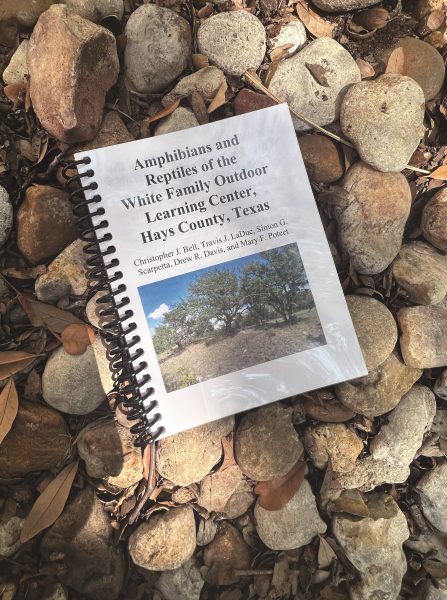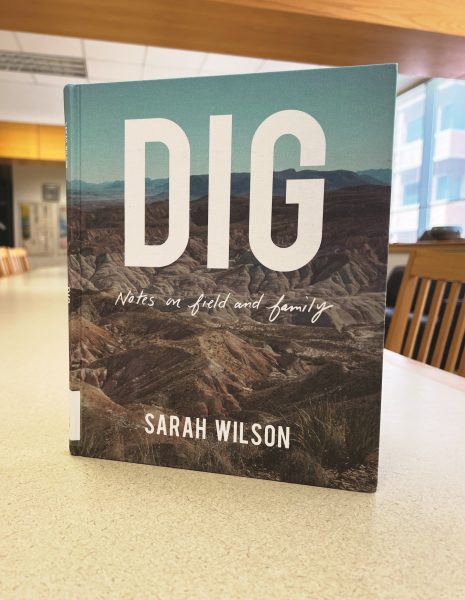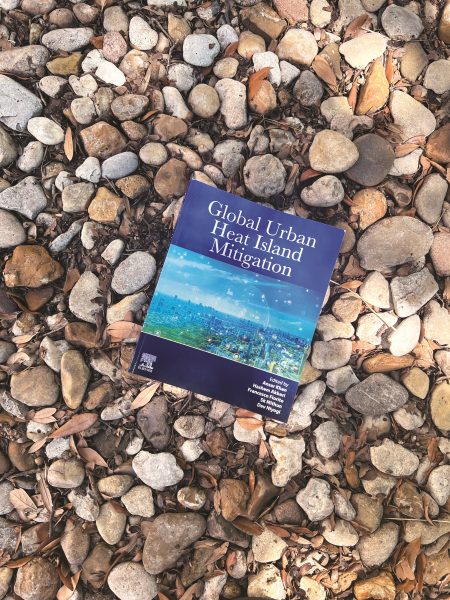Books
December 12, 2023
 |
 |
 |
Amphibians and Reptiles of the White Family Outdoor Learning Center, Hays County, TexasBy Christopher Bell, Travis LaDuc,
The 266 acres that make up the White Family Outdoor Learning Center is an outdoor classroom and living laboratory for students and researchers at the Jackson School of Geosciences. But more than just geoscientists are at the learning center. A new self-published book by the Jackson School’s Christopher Bell, a professor in the Department of Earth and Planetary Sciences, and collaborators provides an overview of the reptiles and amphibians that call the learning center home. The book contains 35 entries. Each entry includes a photo, a brief description, and whether the animal has been spotted at the center or is just suspected of being there. Cataloging the ecological diversity of the learning center is an ongoing project. The book includes a QR code to the center’s iNaturalist webpage, where visitors can upload photos and data on the plant and animal life they have encountered at the learning center. The book is available to visitors of the learning center for free. Contact the Jackson School’s communications office for more information. |
DIG: Notes on Field and FamilyPhotographs by Sarah Wilson. Essay West Texas vistas, fossil digs at Big Bend National Park and dramatic specimens from the Vertebrate Paleontology Laboratory are all featured in a new book of photographs by Sarah Wilson. Wilson is the granddaughter of John “Jack” Wilson, who founded the Vertebrate Paleontology Laboratory in 1949. In her book, Wilson uses photography to explore family connections and to create self-portraits in the style of geologic and anatomical charts. The book also features an essay by Matthew Brown, the current director of the Vertebrate Paleontology Laboratory. The book is available at www.yoffypress.com/catalog/dig
|
Global Urban Heat Island MitigationEdited by Ansar Khan, Hashem Around the world, communities are facing rising temperatures. A recently published book offers an overview of the issue and potential technologies and strategies for relief. The book is co-edited by Dev Niyogi, a professor in the Jackson School of Geosciences Department of Earth and Planetary Sciences. The book combines urban climate research concepts with case studies. Examples include quantifying shade levels and tree planting, the role of lighting in urban heat island mitigation, and the influence of land use composition and pattern on land surface temperature. The book’s intended readership is urban planners and designers, climatologists and city policy makers. The book is available through
|
Back to the Newsletter
